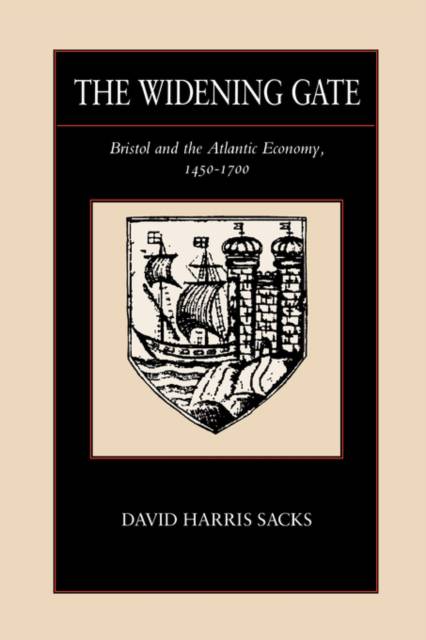
- Afhalen na 1 uur in een winkel met voorraad
- Gratis thuislevering in België vanaf € 30
- Ruim aanbod met 7 miljoen producten
- Afhalen na 1 uur in een winkel met voorraad
- Gratis thuislevering in België vanaf € 30
- Ruim aanbod met 7 miljoen producten
Zoeken
€ 67,95
+ 135 punten
Omschrijving
The history of capitalism is not to be explained in mere economic terms. David Harris Sacks here demonstrates that the modern Western economy was ushered in by broad processes of social, political, and cultural change. His study of Bristol as it opened it gate to national politics and the Atlantic economy reveals capitalism to be not just a species of economic order but a distinct form of life, governed by its own ethical norms and cultural practices. Availing himself of the methods of "thick description," socio-economic analysis, and political theory, Sacks examines the dynamics by which early modern Bristol moved from a medieval commercial economy to an early capitalist one. Throughout the period, the life of the city depended heavily on the successes of its great overseas merchants. But their quest for a monopoly of trade with the outside world, from the Atlantic seaboard to the Levant, came into conflict with the concerns of Bristol's artisans and retail shopkeepers. The battles of the two factions conditioned social and cultural developments in Bristol for two centuries. Locally, the conflict set the terms for developing conceptions of justice and authority. On a larger scale, it drew the community firmly into the great affairs of the realm and the wider world of expanding markets beyond.
Specificaties
Betrokkenen
- Auteur(s):
- Uitgeverij:
Inhoud
- Aantal bladzijden:
- 450
- Taal:
- Engels
- Reeks:
- Reeksnummer:
- nr. 15
Eigenschappen
- Productcode (EAN):
- 9780520084490
- Verschijningsdatum:
- 30/12/1993
- Uitvoering:
- Paperback
- Formaat:
- Trade paperback (VS)
- Afmetingen:
- 155 mm x 229 mm
- Gewicht:
- 730 g

Alleen bij Standaard Boekhandel
+ 135 punten op je klantenkaart van Standaard Boekhandel
Beoordelingen
We publiceren alleen reviews die voldoen aan de voorwaarden voor reviews. Bekijk onze voorwaarden voor reviews.











